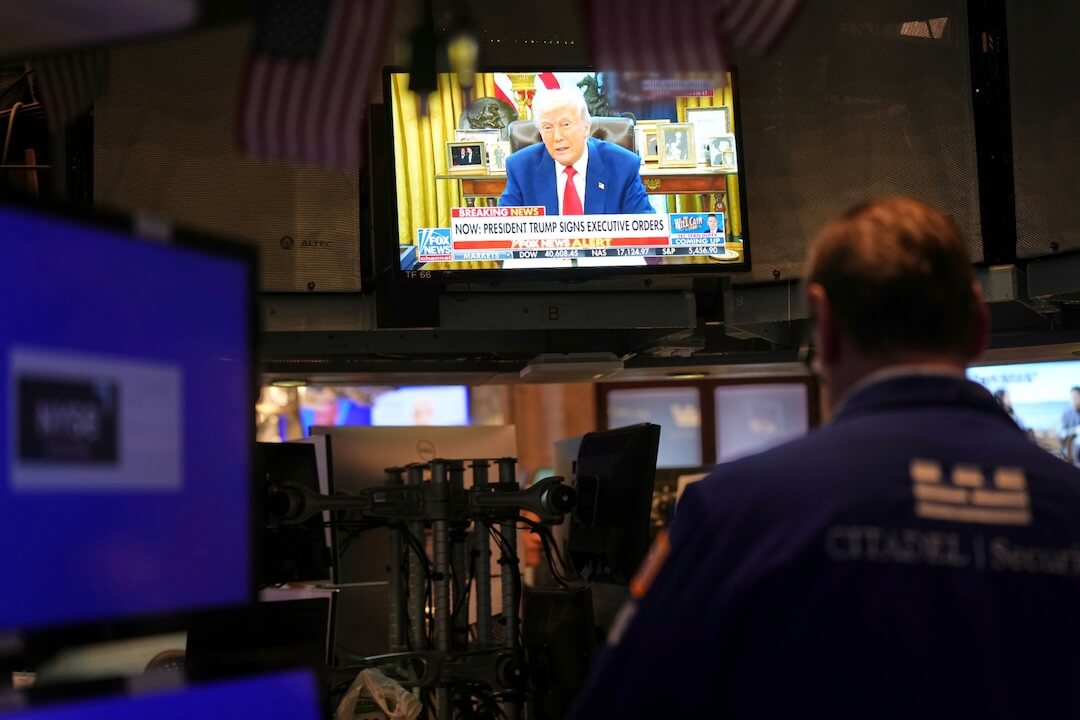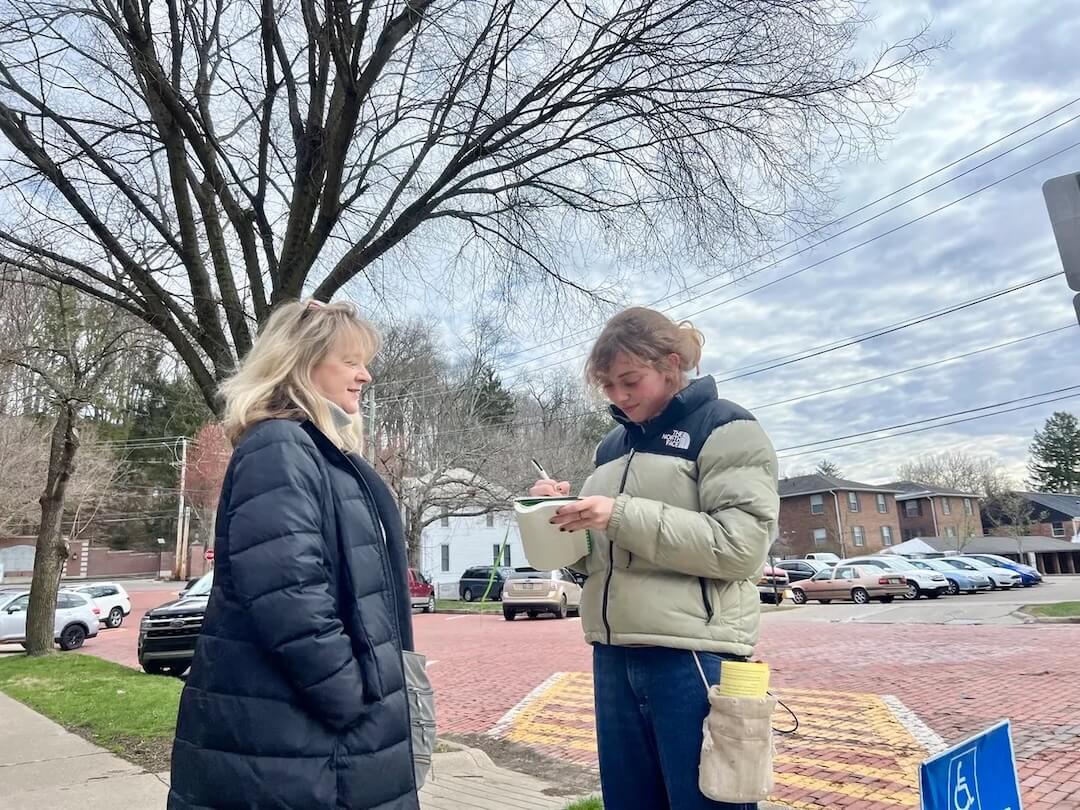Is fact-checking possible in a place like Venezuela?
In June, the United Nations High Commissioner for Refugees reported that the number of Venezuelans fleeing the country had reached 4 million, making the group one of the largest displaced populations in the world. Headlines from the last year have referred to Venezuela as a “failed state,” citing its oppressive authoritarian regime and shortage of food, water, and medicine.
Under these circumstances, it might seem that fact-checking — a practice that relies on freedom of speech and the availability of reliable institutional data — would be entirely unfeasible. But Daniel Acosta and Jeanfreddy Gutierrez Torres, two Venezuelan fact-checkers in attendance at this year’s international fact-checking summit, prove the contrary.
“We can’t work like the rest of the world,” Acosta told IFCN. “In fact-checking courses taught by Chequeado or the Knight Center, the first thing they tell you is to refer to the official source. But in Venezuela, official sources don’t exist.”
While Venezuela used to be a shining example of democracy and prosperity in the region, the destructive dictatorship of Hugo Chavez, since continued by his predecessor Nicolas Maduro, has essentially eliminated citizen access to crucial statistics and information about the country. As a result, fact-checkers like Acosta and Gutierrez have had to rely on secondary sources like academics to conduct their reporting.
“Systems of information continue to close up, rather than become more accessible,” Acosta said. “There’s no such thing as open data.” He explained that universities and civil society organizations have somewhat filled this gap, producing their own reports on violence or living conditions. “This data is good, but not nearly as accurate as it would have been coming directly from the ministries themselves.”
Cotejo, Venezuela’s first fact-checking initiative, was launched in 2016. A year later, Acosta and his team found out that the website had been selectively blocked by the government, so they’ve since had to resort to posting entire articles on Facebook or summarizing findings on Instagram.
Efecto Cocuyo, a Venezuelan online media site, began to do fact-checks in 2017. Jeanfreddy Gutierrez is one of the organization’s three fact-checkers, and he observed that along with the growth of fact-checking in the country came an even greater crackdown on publicly accessible information.
“Online portals aren’t there anymore; archives that used to be available are gone,” he told IFCN. “Every time you check, it’s worse.” He explained that this has resulted in some particularly egregious lying from politicians, especially in regard to agriculture. In March of last year, for example, Efecto Cocuyo fact-checked a politician’s claim that the country had produced 126,270 tons of coffee. According to the site, the real number is probably closer to 39,000.
“People aren’t experts in agriculture, and they don’t have any other reference point, so politicians make up whatever they want about the country’s production,” Gutierrez said.
Despite Venezuela’s abundant resources for agricultural production, industrial output has crashed in recent years, and the population has struggled to feed itself. In 2017, Reuters reported that the average Venezuelan had lost 24 pounds, with 90% of the country living in poverty.
The extraordinary challenge of attaining reliable information is just one of the limitations Gutierrez and Acosta have experienced as journalists in Venezuela. In a country overrun by an oppressive, violent dictatorship, reporting on politics can be a tricky task for fact-checkers, who are expected to maintain a perfectly neutral editorial tone.
Gutierrez explained that Efecto Cocuyo had been “desperate to find something Maduro said that was true,” to establish the organization’s legitimacy as a non-partisan entity.
Cotejo took a different approach; when Acosta and his team identified a claim from Maduro that was accurate, they had what he called a “healthy debate” over whether to publish the fact-check.
“We didn’t know if we wanted to give that kind of platform to a dictator,” he said. “But ultimately, we made the decision to publish, and ensured that we’d contextualized his statement to give a greater value to the article.”
Like so many others, Acosta has since left Venezuela and now works part-time for Cotejo from his new home in Houston, Texas. Gutierrez continues to live in the country, reporting from the outskirts of Palo Negro. He earns $60 a month for his reporting, which is high by the country’s standards. Both Efecto Cocuyo and Cotejo struggle to find adequate funding, especially given the country’s persecution of journalists.
Acosta and Gutierrez have also struggled with establishing legitimacy amongst their audience, since all private and historically trusted media channels in Venezuela have been shut down by the government. Gutierrez said he believes this has resulted in a decrease in trust in media outlets, so news consumers are more likely to believe messages sent to them by family and friends on Snapchat, WhatsApp or Instagram. “They want the news to come to them,” he said. “They don’t want to have to go to some media site that’s claiming to be objective to do their research.”
Both fact-checkers were delighted to be able to attend Global Fact 6, this year’s international conference hosted by Poynter’s International Fact-Checking Network, in Cape Town, South Africa.
While many at Global Fact are concerned with automation, expanding audience reach and implementing innovative strategies to their work, Acosta and Gutierrez are seeking ways to overcome the grave challenges of fact-checking in a humanitarian crisis being carried out by a brutal authoritarian dictatorship.
They know their fact-checks might not be considered perfect by global standards, but in a country that desperately lacks dependable sources of knowledge and information, they’re doing the best they can. As Acosta said, “En el mundo de los ciegos, el tuerto es rey.” (“In the country of the blind, the one-eyed man is king.”)







